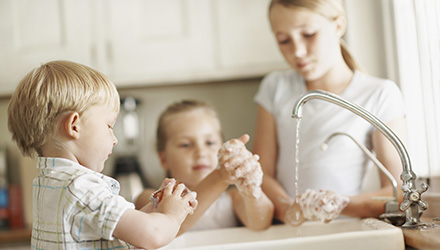24 May 2016
Test your Home for Hard Water
Having hard water (calcium and magnesium concentration) is not an immediate health hazard but hard water can be a nuisance in your home. The most common problem is having mineral build up in your pipes or appliances which can lead to clogs and prevent soap from lathering. Having an in-house water softener can prevent bathtub rings and spots on dishes and will also reduce the amount of soap or detergent you are using.
Hardness of water is measured by grains per gallon (GPG) or parts per million (PPM) of dissolved minerals. Although some of the signs of water hardness can be determined by some of the more obvious signs, it is also good to know just hard your water is.
Some health departments offer testing and some cities publish a water quality report on their websites. If you area doesn’t, you have options.
1) Find an empty plastic bottle. Fill the bottle one third full with water and a few drops of pure liquid soap. Shake the bottle for 5 seconds. If there is a lack of bubbles and you have milky looking water, you probably have hard water. Soft water would result in a lot more bubbles and the water at the bottom of the bottle would be more clear. This option simply determines whether or not you have hard water but it doesn’t address the level of hardness.
2) You might be able to request a free hard water test strip from your city, or find a kit at your local hardware store. These kits come with simple test strips along with a chart that illustrates the range of hardness. If you have hard water, it is recommended that you consider installing a water softener.
Tagged with:

